Search
Search Results
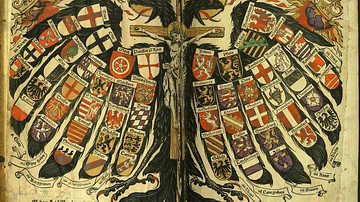
Definition
Holy Roman Empire
The Holy Roman Empire officially lasted from 962 to 1806. It was one of Europe’s largest medieval and early modern states, but its power base was unstable and continually shifting. The Holy Roman Empire was not a unitary state, but a confederation...

Definition
Declaration of Pillnitz
The Declaration of Pillnitz was a joint statement issued on 27 August 1791 by Leopold II, Holy Roman Emperor (r. 1790-1792) and King Frederick William II of Prussia (r. 1786-1797). The declaration appealed to all European powers to unite...

Definition
Anne of Austria
Anne of Austria (1601-1666), as the wife of King Louis XIII of France (r. 1610-1643), was queen consort of France and of Navarre when the Kingdom of Navarre was annexed by the French Crown. She also acted as regent for her son, King Louis...

Definition
Marie Antoinette
Marie Antoinette (l. 1755-1793) was the queen of France during the turbulent final years of the Ancien Régime and the subsequent French Revolution (1789-1799). With the ascension of her husband Louis XVI of France (r. 1774-1792), she became...

Definition
Roman Empire
The Roman Empire, at its height (c. 117), was the most extensive political and social structure in western civilization. Building upon the foundation laid by the Roman Republic, the empire became the largest and most powerful political and...
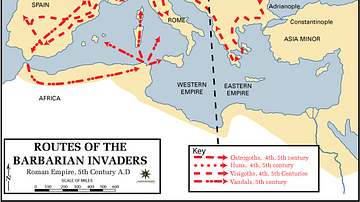
Definition
Western Roman Empire
The Western Roman Empire is the modern-day term for the western half of the Roman Empire after it was divided in two by the emperor Diocletian (r. 284-305 CE) in c. 285/286 CE. The Romans themselves did not use this term. At its height (c...
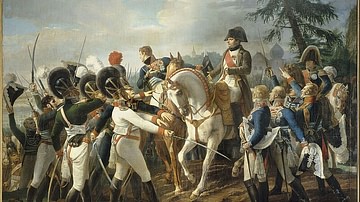
Definition
War of the Fifth Coalition
The War of the Fifth Coalition (1809) was a major conflict of the Napoleonic Wars (1803-1815) that was fought primarily in Central Europe between the First French Empire and its client states against the Austrian Empire, supported by the...
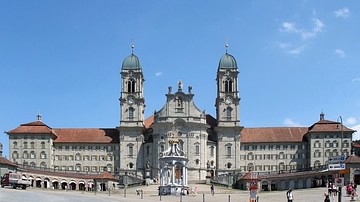
Definition
Einsiedeln Abbey
Einsiedeln Abbey and Monastery (German: Kloster Einsiedeln), located some 31 km (19 mi) southeast of Zürich at the foot of a hill in the town of Einsiedeln in Canton Schwyz, Switzerland, is the most important site of Roman Catholic pilgrimage...
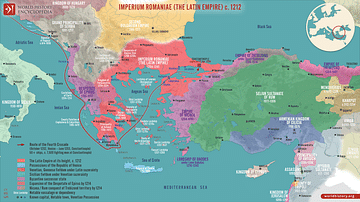
Definition
Empire of Nicaea
The Empire of Nicaea was a successor state to the Byzantine Empire, or rather a Byzantine Empire in exile lasting from 1204 to 1261 CE. The Empire of Nicaea was founded in the aftermath of the sacking of Constantinople during the Fourth Crusade...
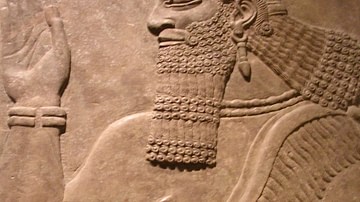
Definition
Neo-Assyrian Empire
The Neo-Assyrian Empire (912-612 BCE) was the final stage of the Assyrian Empire, stretching throughout Mesopotamia, the Levant, Egypt, Anatolia, and into parts of Persia and Arabia. Beginning with the reign of Adad Nirari II (912-891 BCE...